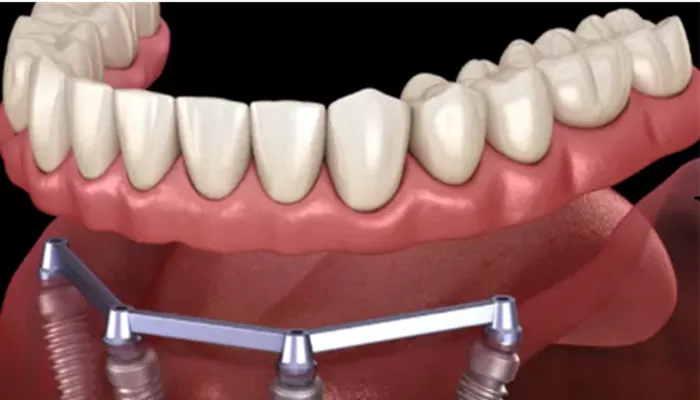Dental implants are a popular solution for replacing missing teeth. They provide a strong foundation for crowns, bridges, or dentures. One crucial aspect of dental implants is the fit of the crown on the implant. This article will explore how tight the crown should be on the implant, the factors that influence this tightness, and the implications of improper fitting.
Understanding Dental Implants
What Is a Dental Implant?
A dental implant is a titanium post that is surgically placed into the jawbone. It acts as a replacement root for a missing tooth. Once the implant integrates with the bone, a crown is placed on top to restore function and aesthetics.
Components of a Dental Implant
A dental implant consists of three main parts:
Implant: The titanium post inserted into the jawbone.
Abutment: A connector placed on top of the implant. It holds the crown securely.
Crown: The visible part of the tooth that is placed on the abutment. It is usually made of porcelain or ceramic to match the natural teeth.
Importance of Crown Tightness
Why Is Crown Tightness Important?
The tightness of the crown on the implant is crucial for several reasons:
Stability: A properly tightened crown ensures stability. It prevents movement during chewing and speaking.
Long-Term Success: A well-fitted crown contributes to the long-term success of the implant. It helps maintain the health of the surrounding gum tissue and bone.
Comfort: A crown that is too loose can cause discomfort. It may lead to irritation of the gums or even damage to the implant.
What Happens If the Crown Is Too Tight?
If the crown is overly tight, it can cause several problems:
Pressure on the Implant: Excessive pressure can lead to implant failure. It may cause bone loss around the implant.
Gum Recession: A tight crown can irritate the gum tissue, leading to inflammation and recession.
Pain and Discomfort: Patients may experience pain or discomfort if the crown is too tight.
Factors Influencing Crown Tightness
1. Type of Implant
Different types of implants may require different levels of tightness for the crown. Some implants have specific design features that influence how tightly the crown should be secured.
2. Abutment Design
The design of the abutment plays a significant role in how the crown fits. Some abutments are designed to provide a more secure fit, while others may allow for slight adjustments.
3. Material of the Crown
The material used for the crown can also influence how tight it should be. Porcelain crowns, for example, can be more brittle than metal crowns. Therefore, they may require a different level of tightness to avoid fractures.
4. Dentist’s Technique
The technique used by the dentist during the placement of the crown is crucial. A skilled dentist will know the appropriate level of tightness based on their experience and the specific case.
5. Patient Factors
Individual patient factors, such as bone density and gum health, can also affect how tight the crown should be. Patients with healthy bone and gums may tolerate a tighter crown better than those with compromised tissues.
Recommended Tightness for Crowns on Implants
General Guidelines
Torque Specifications: Most dental professionals follow specific torque specifications for tightening crowns on implants.
This usually ranges from 20 to 30 Newton centimeters (Ncm) for most standard implants. However, the exact torque can vary based on the manufacturer’s guidelines and the type of implant used.
Manual Tightening: In some cases, dentists may use a manual technique to tighten the crown. This involves using a hand tool to achieve the desired tightness without over-tightening.
Check for Fit: After tightening, the dentist should check the fit of the crown. It should be secure but not overly tight. The patient should be able to bite down comfortably without discomfort.
Importance of Follow-Up
After the crown is placed, follow-up appointments are essential. During these visits, the dentist can assess the fit and make any necessary adjustments. If the crown feels loose or tight, it is important to inform the dentist promptly.
Signs of Improper Tightness
1. Pain or Discomfort
If the crown feels painful or uncomfortable, it may be too tight or too loose. Patients should report any discomfort to their dentist.
2. Mobility of the Crown
A crown that moves when pressure is applied is likely too loose. This can lead to further complications, including implant failure.
3. Gum Irritation
If the gums around the crown are swollen, red, or bleeding, it may indicate that the crown is too tight or that there is an issue with the fit.
Maintaining Crown and Implant Health
1. Regular Dental Check-Ups
Regular visits to the dentist are crucial for maintaining the health of the implant and crown. During these visits, the dentist can check the fit and make necessary adjustments.
2. Good Oral Hygiene
Maintaining good oral hygiene is essential for the health of the implant and surrounding tissues. Patients should brush and floss regularly to prevent plaque buildup.
3. Avoid Hard Foods
Patients should avoid hard or sticky foods that can put excessive pressure on the crown. This can help prevent loosening or damage to the crown.
4. Use a Night Guard
For patients who grind their teeth at night, using a night guard can help protect the crown and implant from excessive pressure.
Conclusion
The tightness of the crown on a dental implant is a critical factor in the success of the restoration. A properly tightened crown ensures stability, comfort, and long-term health of the implant. While general guidelines suggest a torque range of 20 to 30 Ncm, individual factors such as implant type, abutment design, and patient health must be considered.
Patients should communicate any concerns about the fit of their crown to their dentist. Regular dental check-ups, good oral hygiene, and avoiding hard foods can help maintain the health of the implant and crown. By understanding the importance of proper crown tightness, patients can ensure the longevity and success of their dental implants.
Related topics:

